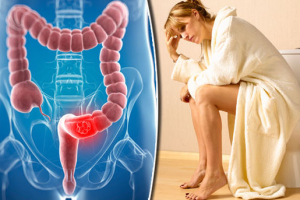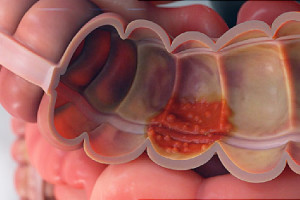
Anal fissures are small cuts or tears in the anus’s lining. Skin cracks result in pain and some bleeding during bowel movement. In some instances, the fissures can be deep causing the muscles underneath to be exposed.
An anal fissure isn’t considered a severe problem. It can affect people of every age and is often seen in infants as well as young children since constipation is a common issue in these age groups.
In many cases, the tear can resolve on its own within 4 to 6 weeks. If the fissure continues to persist beyond eight weeks, it is considered severe and chronic.
Several anal fissures treatment options can promote healing and relieve the discomfort. These include stool softeners and topical pain relievers.
If anal fissures do not improve utilizing these treatments, surgery may be required. Your physician may also need to examine other underlying disorders that can be causing the anal fissures.
How to do self-care when you have anal fissures
If your fissures are a result of constipation or diarrhea, it is critical to switch to a few habits to help ease the strain on the anal area. These steps can provide symptom relief and encourage healing in a majority of cases.
- Stay hydrated
- Drink plenty of fluids throughout the day that are caffeine-free.
- Consume fiber-rich diet
- Your goal should be to get at least 20 to 35 g of fiber in your nutrition each day to mitigate constipation. You can gradually increase these amounts by having more wheat bran, oat bran, peas, and beans, as well as citrus fruits.
- You can also try fiber supplements if you’re not getting enough fiber from your meals. They are stool softeners for more regular bowel movements. To mitigate gas and cramping, it is critical to gradually raise the number of fiber supplements your take until you reach the optimum dosage.
- Over-the-counter laxatives are also helpful. Prior to taking any laxatives, please consult with your doctor about what they can suggest.
- Don’t ignore your urge to have a bowel movement. Delaying bowel movements for later can lead to constipation. Stools can get harder and result in pain and tearing.
- Avoid straining or sitting on the toilet for too long. This habit can increase the pressure in the anal area.
- Clean and dry the anal area after every bowel movement.
- Steer clear of skin irritants, such as fragrance soaps or bubble baths.
- Obtain treatment for severe constipation or diarrhea.
- Hip baths can enhance the healing of the anal fissure. Soak the anal area in a tub a couple of times to 3 times a day for up to 15 minutes. It cleans the anal area, improves blood circulation, and relaxes the anal sphincter.
These habits are typically sufficient to heal most anal fissures within several weeks to a few months. But when it isn’t enough, consult with your doctor about other treatments.
Medications for anal fissure treatment
- Nitrate ointment
Your doctor may provide a prescription for these to help enhance blood flow to the anal canal and sphincter. It aids in helping fissures get better swiftly. Several side effects may include dizziness as well as low blood pressure. This anal fissures treatment should not be utilized within 24 hours of taking erectile dysfunction medication.
- Calcium channel blockers
These medications are blood pressure lowering. Some of the topical ones can help in the treatment of anal fissures as well. Side effects include headaches.
- Botox injections
When topical treatments are not effective, injecting Botox into the sphincters is typically the next step. Botox injections result in temporary paralysis of the sphincter muscle. It helps relieve pain and encourages healing in over 60% to 80% of patients. Although you may not be able to control your bowel movements or gas, it is only temporary. The dosage is little, so there is no risk of botox poisoning.
- Surgery
You probably won’t require anal fissure surgery unless the treatments discussed have worked. Surgery for anal fissures is called sphincterotomy, which involves making a small incision in the anal sphincter muscle. It helps mitigate pain and pressure along the anal fissure.
Takeaway
Anal fissures may result in sharp pain and small amounts of blood with bowel movements. Conditions associated with anal fissures include previous anal surgery, inflammatory bowel disease as well as local cancers. STD is also linked to anal fissures.
Certain conditions that directly result in anal fissures are trauma to the area, such as vaginal delivery and constipation.








